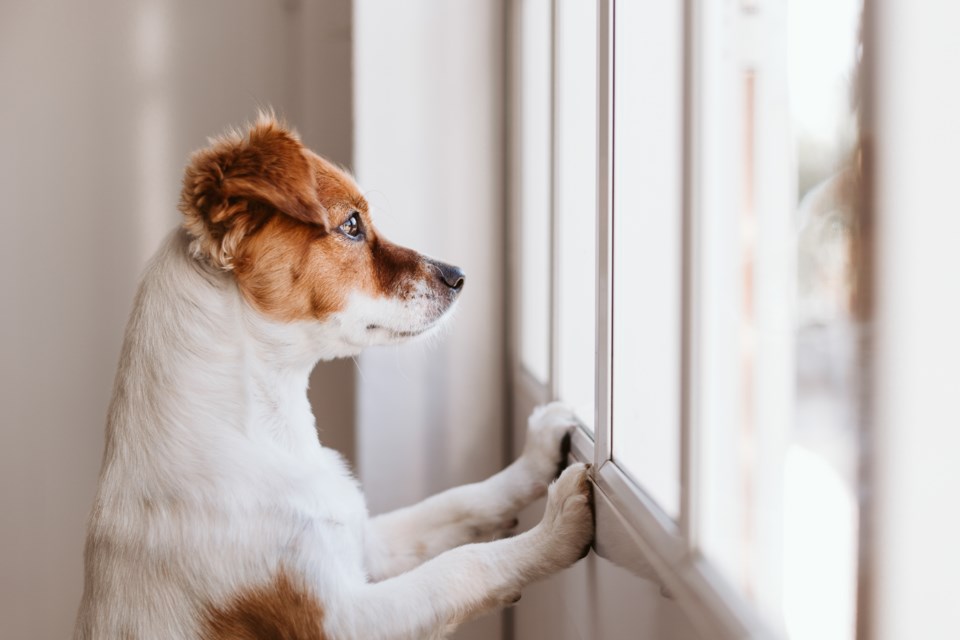As the pandemic situation continues to evolve and people return to office work, UBC has some suggestions for pet owners.
Pets acquired during the pandemic may only have known life with their human homebound, while others have gotten used to the pandemic life without understanding it'll end; how animals cope with their human returning to work is a concern, says Dr. Alexandra Protopopova, an assistant professor in animal welfare at the Vancouver-based university.
"Unfortunately, this change is tough for many dogs, and especially for the pandemic puppies, since they have not yet had to learn how to be away from you," she says in a release.
For those worried about how the sudden return to being apart for long periods each day might affect their animal companions, Protopopova says not doing it suddenly is a good start.
"I would suggest planning ahead. You want to imagine your ‘back to normal’ life and then work backwards from that," she says. "This could mean leaving your dog at home when you go shopping or on errands with the ultimate goal of gradually increasing the periods of separation."
When leaving the house, using a puzzle feeder or a food-stuffed toy may be a good way to deal with dogs, she adds.
Another gradual change to consider would be the number of walks a dog is taken on, and slowly decreasing to what is likely for the new normal.
If gradual changes aren't possible for yourself, asking a neighbour or hiring a dog walker might be a way to create that gradual change in a different way.
She notes it can also be a difficult transition for some people and there can be real effects on an individual's mental health.
Additionally, it appears there are more animals being surrendered to shelters, but it's not clear what the reason is.
"We are seeing higher numbers of surrenders now but there’s no evidence that new owners are surrendering their pandemic puppies," says Protopopova.
For those considering surrendering an animal, she suggests looking at a variety of options.
"If you are in this position, I’d encourage reaching out to a local animal shelter about what support they can give you, since some offer low-cost resources, food donations, financial assistance, and behavioural help, depending on your circumstance," she suggests.

.png;w=120;h=80;mode=crop)

